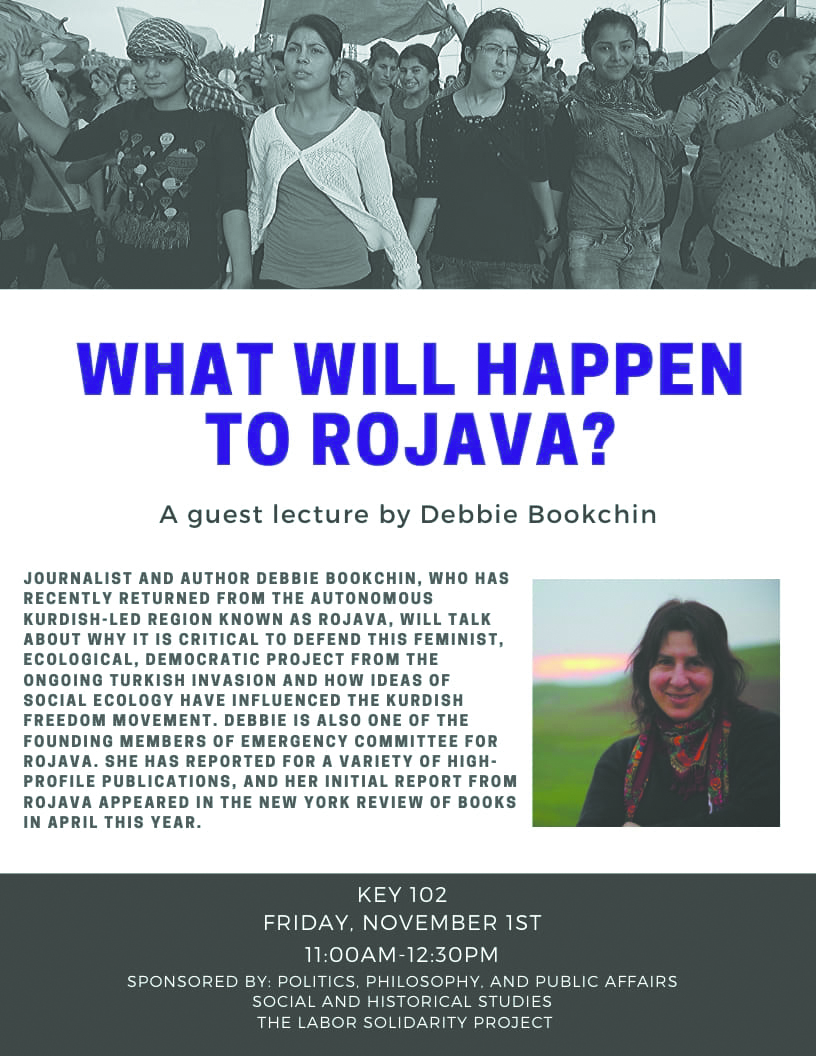Journalist advocates for Americans to protect Rojavan democratic system
Rojava is a small, Kurdish area in northeastern Syria and is also known as The Autonomous Administration of North and East Syria. Rojava is known for their Kurdish democratic system. Debbie Bookchin, former writer for The New York Times, spent six months in Rojava, and is now focused on how Americans can learn from them. Herlecture “What Will Happen to Rojava?” that was presented Nov. 1 also elaborated on how to defend what Rojava stands for.
“What I’m hoping you take away from this is a sense that all of these issues — climate change, feminism, racism, et cetera — are directly relevant to what’s going on in the middle east,” Bookchin said.
Bookchin explained that a lot of what Rojava believes in is empowering women. While Rojava has a senate, they also have a separate senate that is comprised of only females. Rojava is not the only Kurdish city with this. Most, if not all, Kurdish cities make sure all locals feel empowered by having a female only council along with regular councils.
Kurdistan, a region that spans across Turkey, Iran, Iraq and Syria, contains a population of around 38 million people. Thirty million Kurds live in Turkey, about six million in Iran and Iraq and about 2.5 million in Syria.
Bookchin’s father, Murray Bookchin, was an author and philosopher based in New York who founded the theory of social ecology. He wrote many books relating to ecology, urbanization and anarchy, and later was very involved with The Kurdish Project.
The Kurdish Project was made for people to connect and learn about Kurdistan. Their mission is to serve as a gateway for non-Kurdish people to discover, learn, and connect with Kurdish people and culture. They accomplish this by sharing stories and providing news about the Kurdish region, according to their mission statement.
Bookchin mentioned that Rojava’s political style is different than ours and shared a video of her late father making the same point.
“We need an economy that supports cooperation, not competition,” Murray Bookchin said in the recording.
Both Bookchins are advocating for a need to develop a new kind of politics, and that the Kurdish and Rojavan model is where American can find a solution.
“Rojava is a place that I hope we can find solidarity,” Bookchin said.

